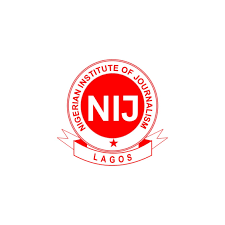Government Keypoints: Local Government; This study material is suitable for students sitting for the following exams: JAMB, WAEC, NECO, GCE, IJMB, and JUPEB.
Study more government keypoints here
Local government plays a crucial role in governance, providing essential services and representing the grassroots level of administration. Understanding its historical evolution, structural reforms, functions, financial management, relationship with traditional rulers, and the challenges it faces in Nigeria is vital to comprehending its significance in national development.
a. Local Government Administration Before 1976:
Before 1976, local governance in Nigeria operated under different systems, including native authorities and indirect rule by colonial administrations. These systems were characterized by varying levels of autonomy and influence from traditional rulers in local administration. They had limited powers and were subject to central government control.
b. Features of Local Government Reforms (1976, 1989):
- Structure: Reforms in 1976 and 1989 aimed to restructure local government systems, establishing elected councils at the grassroots level.
- Functions: The five primary functions include provision of basic amenities (water, healthcare), primary education, rural development, sanitation, and infrastructure development within their jurisdiction.
- Finance and Inter-governmental Relations: Local governments receive funds from the federal and state governments, but financial autonomy remains a challenge. Inter-governmental relations involve the sharing of powers and resources between federal, state, and local governments.
c. Traditional Rulers and Local Governments:
Traditional rulers often wield influence within local governance structures due to their cultural significance and close ties to the community. They may act as advisors or hold ceremonial roles, sometimes influencing decision-making processes within local councils.
d. Problems of Local Government Administration in Nigeria:
- Financial Constraints: Limited financial resources hinder effective service delivery.
- Political Interference: Politicization of local government administrations affects decision-making processes.
- Corruption and Mismanagement: Misappropriation of funds and resources within local councils.
- Inadequate Capacity and Expertise: Shortage of skilled personnel affects service quality.
- Ineffective Inter-governmental Relations: Discrepancies in resource allocation and powers between federal, state, and local governments.
i. Evolution and Structure of Local Government:
The evolution traces from pre-colonial native authorities to the modern elected council system, characterized by increased democratization and representation at the grassroots level. The structure involves local councils headed by elected officials serving specific areas within states.
ii. Major Problems Faced by Local Governments:
- Financial Constraints: Limited funds hamper developmental projects and service delivery.
- Political Interference: Influence by higher tiers of government affects autonomy and decision-making.
- Corruption and Mismanagement: Financial irregularities undermine effective governance.
- Capacity and Expertise Gap: Inadequate skilled personnel impact service delivery.
- Inter-governmental Relations: Unequal resource allocation and powers among tiers of government create challenges for local councils.
Understanding the historical context, structures, challenges, and roles of local governments in Nigeria is crucial for effective governance and addressing issues hindering their functionality at the grassroots level.












